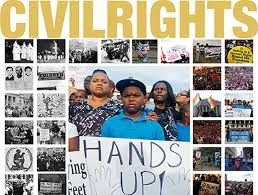More than half of countries use censorship, harassment or violence to repress public debate, warns a report
Nearly six in 10 countries are seriously restricting people’s freedoms, according to a new report that warns of a growing repression around the world.
According to the study, there is little or no space for activism in countries such as Eritrea and Syria, and also worrying signs in countries where democracy is considered well established, such as France, the US, Hungary and India.
The report by Civicus Monitor, an alliance of civil society groups, found that fundamental rights – such as freedom of expression and peaceful assembly – were under attack in 111 of 196 countries.
Countries were also found to be passing repressive laws and using new technologies to control public debate. In China, censorship using new technologies had reached unprecedented levels since President Xi Jinping took power, the report warned.
Cathal Gilbert, civic space research lead at Civicus, said such measures were only the tip of the iceberg, with states more frequently resorting to harassment and violence.
“Extra-legal measures, such as attacking journalists or beating up protestors, are much more common,” he said. “These tactics are cynically designed to create a chilling effect and deter others from speaking out or becoming active citizens.”
Among the countries listed as a concern were the Democratic Republic of the Congo, where authorities have clamped down on dissenting voices following the political crisis that began in 2015, and Guatemala, where at least 21 human rights defenders were killed during 2018.
The report also raised concerns about repressive laws in Bangladesh and France. In France, some of the temporary emergency powers introduced in the wake of the 2015 terrorist attacks have been made permanent, increasing police powers of arrest, detention and surveillance. Such powers, the report warned, have been used to target environmental activists and Muslim civil society groups.
In the Middle East, Saudi Arabia was identified as a country of concern, due to the arrests of religious figures and human rights activists over the past year, including women who campaigned for the right to drive.
Advertisement
Globally, women activists are the most likely to be targeted, according to Civicus.
Overall, conditions for civil society groups had worsened in nine countries since March 2018. But civil society space had increased in seven countries elsewhere, including in Ethiopia, which Gilbert said was a sign of “what is possible when political will is present”.
“This should encourage those seeking change in repressive countries everywhere,” he added. “By removing restrictions and protecting civic space, countries can tap into civil society’s true potential and accelerate progress on a wide range of fronts.”
The Guardian
 Lebanese Ministry of Information
Lebanese Ministry of Information



